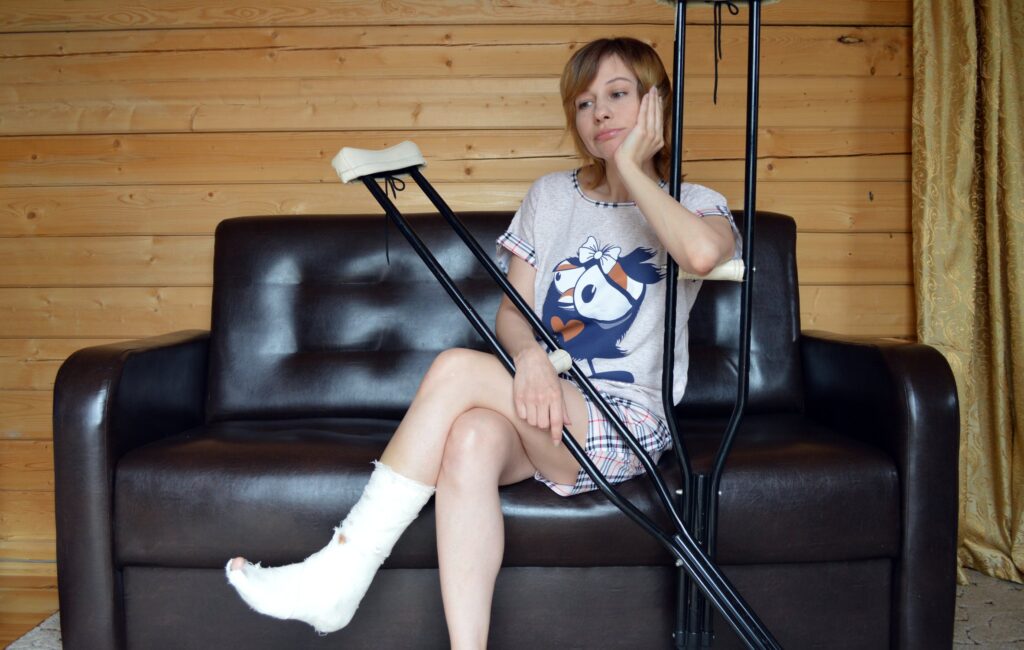
Let me start with this on a Monday morning: I am overwhelmed with gratitude at the kind words and thoughts following my last post. All of you remind me of what I spend time trying to remind you of: that there are silent and not-so-silent crowds out there pulling for you. So thank you for putting voice to that, for both me and for you. Fortunately, I’m already feeling much better physically, and am now looking forward to the long-term results of the procedure.
In the meantime, I had the opportunity to think about some of the practical problems that come with trying to keep myself safe while I was compromised in a number of ways. I had someone here to help me both with fetching and moving around but even with that, I had to consider how that might change my usual plans. Here are some of the things that came up for me that you should also have plans for, if you become injured, sick, or otherwise disabled short- or long-term.
The first was obvious: it was painful to the point of impossibility for me to move around. Even a few days in, bending and twisting were difficult, and that made it tough to even roll over in bed. Like many people, I keep home defense tools like flashlights, gun, and cell phone near my bed, but I couldn’t actually reach them. It hurt too much to move at times, even if I really really wanted to get that thing over there right now. Some strategic rearrangement can be a good idea in situations like that, whether permanent or temporary until you get moving again. Related to that, I moved exactly like I felt: awkward and a bit crippled, an easy victim who wouldn’t be able to easily run or physically fight back. That made this weekend a great time to let friends come to me, and to use delivery services, rather than go out where I could be targeted. Since my ability to carry my usual self-defense tools was also limited, that also reduced my risk exposure. Think now about what you can do to adjust where your defensive tools live and who you can call for assistance if you are injured.
Another was less obvious, until I started downing the painkillers. There are a variety of medications that can have adverse effects on your alertness and your ability to think clearly, and you may not know until you’ve taken them. You can also react differently to medications you’ve taken before, if you are now in pain or sick in a different way than the last time you took it, let alone if you are now taking a new dosage or have additional medications in the mix. And just like being intoxicated by alcohol, impaired judgment is bad juju when it comes to self-defense. It makes it harder to see when a situation isn’t safe, it makes it harder to effectively use defensive strategies, and it makes it harder to make legally justifiable choices if you must act. You may respond more slowly, or be a little more twitchy than you would normally be. It can be hard to know until you’re actually under the influence. If you will be prescribed new medications, as part of a medical procedure or not, you should plan ahead about how they may change your defensive plans. In some cases, that may even involve locking up guns in a way that you can’t access them until you’re feeling better, so you might need to enlist a friend to help you if that happens.
Those were just the issues immediately related to defending myself from other people who might want to physically harm me. There are other safety implications to being ill or injured, or to recovering from medical procedures. Your home may no longer be as easy to navigate, for instance. If you blow your knee, will you be able to safely use the bathroom, bathe, and feed yourself with your current setup? If not, how will you manage? Your ability to wisely make important decisions may be compromised. How will you ensure that nobody will take advantage of you in that state? Most importantly, how will you control your zombie-like online shopping impulses, driven by drugs and interrupted sleep?




